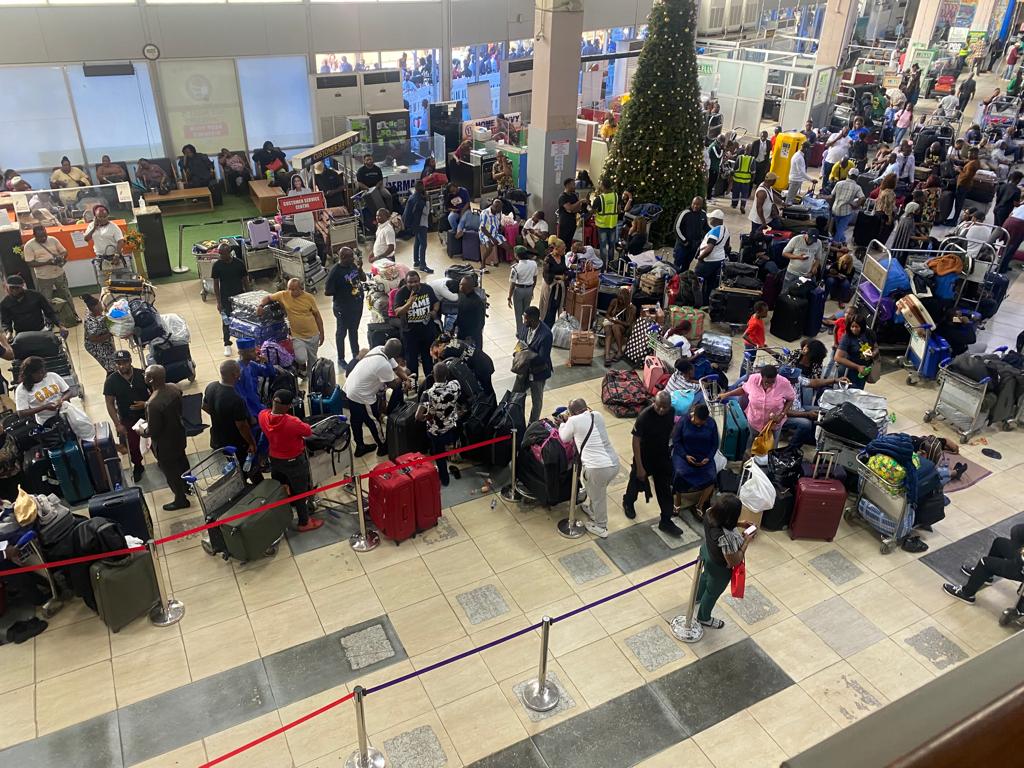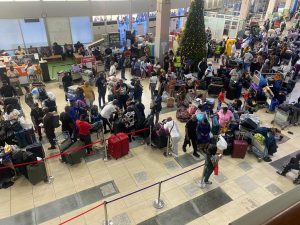Experts in the aviation industry have listed poor on-time performance, incessant flight delays, among others as some of the key factors that led to the demise of Nigerian airlines after a short period of operation.
The experts stated this while examining some of the major reasons why Nigerian carriers cannot compete effectively with other airlines on international routes.
They added that those factors made it extremely difficult for foreign airlines to have code-share arrangement with Nigerian operators.
According to them, flight delays create air of uncertainty in the passenger who goes to the airport not knowing when he will really fly despite the fact thats flight has been scheduled.
Travel expert and organiser of Akwaaba African Travel Market, Ambassador Ikechi Uko, told THISDAY that poor on-time performance was one of the drawbacks of Nigerian airlines because it does not make them competitive in an environment where other airlines are operating like the West Coast, international destinations, noting that consistent flight delay has affected the image of Nigerian operators and can be defined as negative branding for them.
“It stems from the culture, where people do not take keeping to time seriously. One is even tempted to believe it is a Nigerian thing because whenever there is group trip involving Nigerians and others, it is the Nigerians that do not turn up as scheduled,” Uko said.
“If you say that such delays among Nigerian airlines occur because of operation environment you can deflate that argument with the fact that African World Airline (AWA) comes to Nigeria, keeping to its schedule but Nigerian carriers will go to Ghana and fail to keep to their schedule. So, why it is that our own is not as smooth as theirs? I think it is a cultural thing and it is not good for our airlines, ”he said.
The organiser of Akwaaba African Travel Market said that Ibom Air and Green Africa Airways have been comparatively doing well because on-time performance in Ibom Air is 74 per cent and Green Africa is 73 per cent.
He noted that while they could be commended for doing better than others, that percentage is not good enough when compared to the standard outside Nigeria.
However, the Managing Director of Flight and Logistics Solutions Limited, Amos Akpan said 60 per cent of the factors that cause poor on-time performance for domestic operations are outside the management’s control, but 40 per cent is within their control and that is what they must take advantage that, noting Ibom Air and Green Africa have done excellently well with that that time they have.
“Some factors beyond the operators’ management include: limitations of airports to daylight operations, weather minimal limitations, impromptu lack of fuel, delays due to VIP movements, delayed approach to entry/exit in airports due one runway at busy periods or due to incident on runway, and labour unrest.
He said lack of respect for time in every scheduled flight has made Nigerian airlines to lose their premium passengers and has also made it difficult for Nigeria to attract business class passengers on international destinations.
Uko also observed that Nigerian airlines may not even compete with road transporters because ‘a God is Good Motors’ bus can leave Lagos to Benin and arrive Benin before noon, but a passenger who has Lagos-Benin flight by 8 am will still be at the airport by mid-day.
He said on-time performance remained key to business success for airlines, but however explained that it had never worked well in Nigeria because of internal peculiarities, which are strong in Nigeria.
“Some factors within the management’s control include: logistics/coordination of the schedule planning matrix which involves maintenance, flight operations, and passenger services; turn-around time at stations and for line maintenance. This requires personnel with experience that think proactively but act within the safety envelope,” Akpan said.
He said that the Federal Airports Authority of Nigeria (FAAN), the Nigeria Airspace Management Agency (NAMA), fuel suppliers, labour unions must all realize how sensitive on-time performance is for the industry.
“Airline managers should stop the attitude of shifting blames to other organizations because they are lazy about thinking solutions. Customers are really suffering because of avoidable delays and cancellations. Nobody wants unsafe operations just to be timely but most delays and cancellations are not due to safety reasons. We travel and we interact with personnel. We see through some lies, ”he said.
The Chief Executive Officer of Mainstream Cargo Limited, Mr. Seyi Adewale, told THISDAY that poor on-time performance has real present and future challenges or problems for airlines, especially those notorious regarding this issue, remarking that it affects the brand equity of these airlines as well as negatively impact on their desired passenger loyalty.
“Significantly, the airline revenues are greatly impacted whereby the affected airline would be unable to meet its revenue targets apart from ‘grave’ customer dissatisfaction or the consequent burning of more aviation fuel whilst trying to make up for lost time caused by the delay. Similarly, too, the ground support operations are disrupted and make many ground support companies appear inefficient sometimes; causing tarmac, apron airside incidents or accidents whilst rushing to meet up clashing flight or staff work-plan schedules,” he said.







